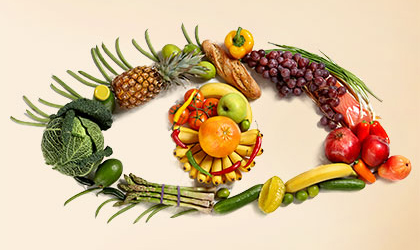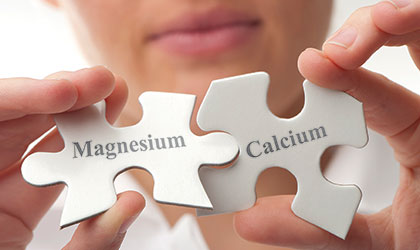
Vision is our gateway into the world. It allows us to interpret reality, process new information, and experience the weird and wonderful things that happen around us. Vision also enables us to foster bonds with others. In fact, that mutual gaze – or eye contact – is profoundly critical to social connectedness and face-to-face interactions. It’s something humans deeply crave. As you can imagine, then, safeguarding the health of your eyesight is nothing short of essential. But your ocular health isn’t just the responsibility of your optometrist. In addition to regular check-ups, you need to nourish your eyes on the daily with a well-balanced diet and lifestyle.
Lifestyle
Slash smoking
Want another reason to stub out this habit for good? Listen up. The pernicious effects of smoking create the optimal environment for a slew of eye conditions: cataracts, age-related macular degeneration (AMD), glaucoma, and dry eye syndromeii. In 2004, the United Kingdom published figures on smoking-induced blindness – and the conclusions were pretty shocking. According to this research, 18,000 people experience visual loss from age-related macular degeneration (AMD) caused by smokingiii. One researcher deemed this phenomenon ‘the ignored epidemic’, demonstrating just how little people know about itiv. Prioritising your eye health is yet another clear-eyed reason to knock this habit on the head. And if you need a little motivation, know this: studies purport those who ditch the smokes have a 6.7 reduced risk of developing AMD after one year; and after five years, the risk drops to 1.7%v. Discover more ways to quit smoking here.
Take it easy on the tipples
Beyond causing the infamous ‘beer goggles’, excessive alcohol consumption can wreak havoc with eye health. Ever wondered why you wake up with sore, red, gritty eyes after a night of heavy drinking? Alcohol is a diuretic, meaning it dehydrates your body and your eyes and leaves your eyes crying out for moisture. A study published in Ophthalmology discovered even small amounts of alcohol could intensify symptoms of dry eye syndrome (DES), triggers burning, light sensitivity, redness and difficulty wearing contact lensesvi.
But dry eyes aren’t the only concern. A meta-analysis revealed prolonged excessive drinking – that is, consuming an average of more than 3 drinks a day – was linked to an increased risk of early AMD in 47%-67% in Western populationsvii. Over time, AMD deteriorates vision and eventually leads to visual loss. Drinking in moderation is the key to keeping your eyes healthy and happy. As far as guidelines go, there’s no magic number. Most experts, however, suggest limiting your alcohol consumption to around 14 units per week, with 2-3 drinks per day.
Wear sunglasses
You apply sun cream to your face and body, so why neglect your eyes? Overexposure to UV light can be detrimental to your peepers, creating the perfect breeding ground for cataracts and age-related macular degeneration (AMD)viii. In some cases, prolonged sun exposure cause retinal burning, or worse, blindness. On bright, sunny days, always wear sunglasses. Make sure your shades carry the ‘CE’ mark, too – a symbol indicating they can safely protect your eyes against harmful UV rays. Oh, and don’t forget snow reflects 80% of the sun’s natural rays, so be sure to whip out your sunnies in cold climates, especially if you’re on the slopes.
Be workplace smart
No matter how many deadlines you’ve got looming, incessantly slaving away behind your work screen isn’t good for your eyes (and probably the rest of your body). As a rule of thumb: always position your computer screen or laptop around 20 to 24 inches away from your eyes, with the central point 10-15 degrees below your line of sight. Tired, sore, dry eyes? It’s time for a break. Use the 20/20/20 rule to reduce eyestrain and dehydration: look at something 20 feet away, for 20 seconds, every 20 minutes. You can apply this strategy to playing video games and watching TV, too.
Diet
Fill up on fish
A grilled salmon fillet doesn’t just taste utterly delicious; it’s also chock-full of vision-loving omega-3 essential fatty acids. Like many other areas of health, omega 3 is vitally important for eye function and tear fluid production. A growing raft of scientific data suggests omega-3 can be immensely beneficial for dry eye syndrome (DES), thanks to it increasing the formation of tear fluid in the eyesix. To reap the blindingly good benefits, aim for 2-3 portions of oily fish (salmon, mackerel, sardines, and anchovies) every week. Not a fish fan? No problem. Avocados, nuts, seeds and olive oil also serve up a delicious amount of omega-3 essential fatty acids.
Eat your greens
Sure – all veggies are bursting with health benefits, but it’s the dark, leafy green kinds that will support your vision best. Spinach, kale, Swiss chard, and parsley are jam-packed with lutein and zeaxanthin – two antioxidants that act as natural sun protection for your peepers. Observational studies advocate a diet rich in lutein and zeaxanthin may reduce the risk of cataracts and age-related macular degeneration (AMD)xxi. Pro-cooking tip: these antioxidants are better absorbed with healthy fats, so why not top that leafy green salad with sliced avocado or lashings of extra virgin olive oil?
Believe the rumours about carrots
Your mother was right when she told you to gobble up your carrots. These orange beauties are teeming with beta-carotene, which is converted in the body to create vitamin A – an essential compound needed for the maintenance of your eyes’ light-sensing cellsxii. Without vitamin A, you may experience dry eyes, night blindness, or more serious eye conditions. In addition to plant sources, you can get your vitamin A fix from animal-based products like liver, egg yolks, and other dairy products.
See with vitamin C
A potent antioxidant, vitamin C plays a protective role in eye health, defending it against invading toxin pathogens called free radicals. This nutrient also assists in the formation and maintenance of the connective tissue found in the cornea. Interestingly, individuals with cataracts tend to have poor antioxidant storesxiii. Peppers, kale, broccoli and citrus fruits are brimming with this antioxidant powerhouse, so be sure to pile your plate high.
Munch on molluscs
The mighty mineral, zinc, is a vitally important building block of the retina in your eyes. Low levels, therefore, are thought to trigger a host of eye problems, including night blindness. Data suggests inadequate zinc stores may even contribute to the aggressiveness of age-related macular degeneration xiv. The go-to zinc source is, of course, those slimy suckers: oysters. But if your stomach – or wallet, for that matter – doesn’t stretch to a diet of bivalves, then embrace lean meat, pumpkin seeds, and peanuts.
References:
-
Wcb-ccd.org.uk. (2018). Britain’s Eye Health in Focus. Available online: http://www.wcb-ccd.org.uk/perspectif/library/BEH_Report_FINAL%20(1).pdf [Accessed 11 Dec. 2018].
-
Nei.nih.gov. (2018). Healthy Eyes Facts: National Eye Institute. Available online: https://nei.nih.gov/health/healthyeyes [Accessed 21 Sep. 2018].
-
Kelly, S.P., Thornton, J., Lyratzopoulos, G., et al. (2004). Smoking and blindness. Strong evidence for the link, but public awareness lags. Br Med J. 328, 357–358.
-
Stone D. (2016). Tobacco smoking and blindness - The ignored epidemic. Saudi Journal of Ophthalmology. 30(3), 149.
-
The National. (2018). Another clear-eyed reason to quit smoking: your vision. Available online: https://www.thenational.ae/another-clear-eyed-reason-to-quit-smoking-your-vision-1.395869 [Accessed 22 Sep. 2018].
-
You, Y.S., Qu, N.B., Yu, X.N. (2009). Alcohol consumption and dry eye syndrome: a Meta-analysis. International Journal of Ophthalmology, 9(10).
-
Chong, E.W., Kreis, A.J., Wong, T.Y, et al. (2008). Alcohol consumption and the risk of age-related macular degeneration: a systematic review and meta-analysis. Am J Ophthalmol, 145 (4) 707-715.
-
World Health Organization. (2018). The known health effects of UV. Available online: https://www.who.int/uv/faq/uvhealtfac/en/index3.html [Accessed 11 Dec. 2018].
-
Pilot, Prospective, Randomized, Double-masked, Placebo-controlled Clinical Trial of an Omega-3 Supplement for Dry Eye. (2011). Cornea, 30(12), 1521-1521.
-
Seddon, J. (1994). Dietary carotenoids, vitamins A, C, and E, and advanced age-related macular degeneration. Eye Disease Case-Control Study Group. JAMA: The Journal of the American Medical Association, 272(18), 1413-1420.
-
Ma, L., Dou, H., Wu, Y., Huang, Y., Huang, Y., Xu, X., Zho, Z. & Lin, X. (2011). Lutein and zeaxanthin intake and the risk of age-related macular degeneration: a systematic review and meta-analysis. British Journal of Nutrition, 107(03), 350-359.
-
Gilbert, C. (2013). The eye signs of vitamin A deficiency. Community eye health, 26(84), 66-7.
-
Jacques, P. & Chylack, L. (1991). Epidemiologic evidence of a role for the antioxidant vitamins and carotenoids in cataract prevention. The American Journal of Clinical Nutrition, 53(1), 352S-355S.
-
Zinc and Macular Degeneration. (2009). Nutrition Reviews, 48(7), 85-287.
You Might Also Like

Olivia
Olivia Salter has always been an avid health nut. After graduating from the University of Bristol, she began working for a nutritional consultancy where she discovered her passion for all things wellness-related. There, she executed much of the company’s content marketing strategy and found her niche in health writing, publishing articles in Women’s Health, Mind Body Green, Thrive and Psychologies.
View More



